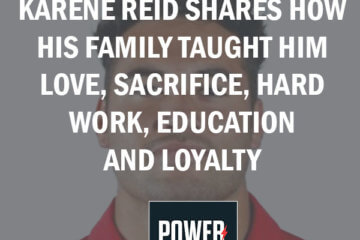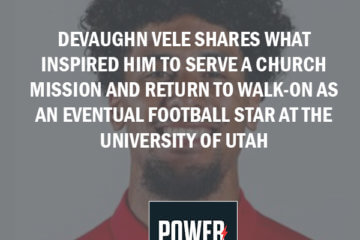Listen to the podcast here:
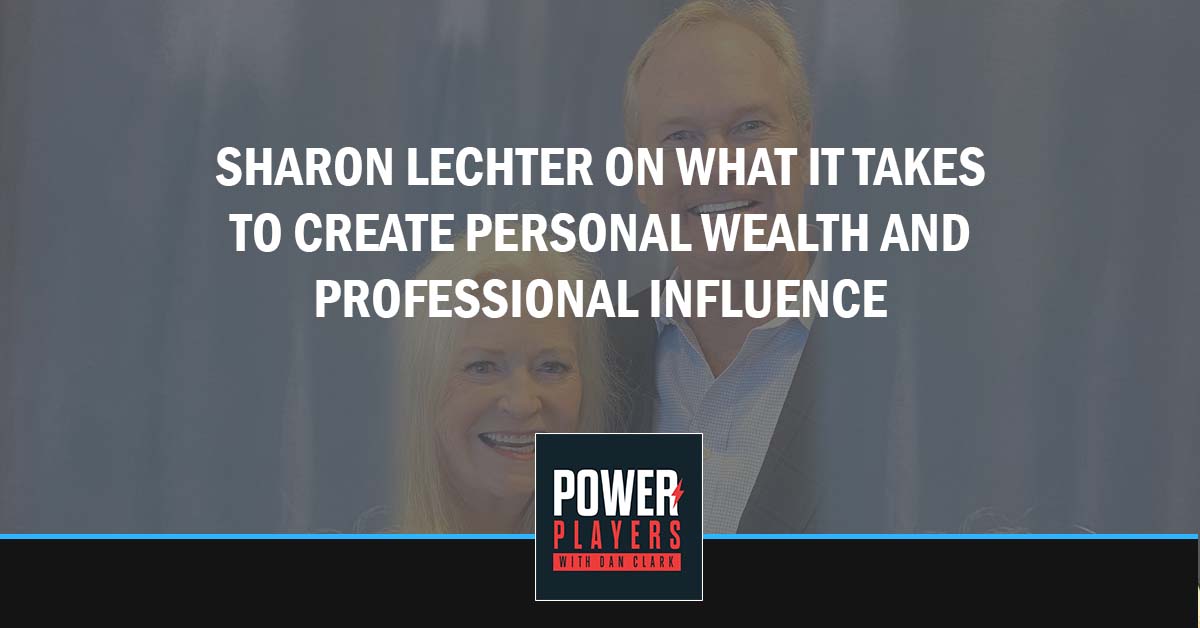
What does it take to create personal wealth and professional influence? In this episode, Dan Clark sits with a friend, colleague, and bestselling author of Think and Grow Rich For Women, and co-author of Rich Dad, Poor Dad, Sharon Lechter. When it comes to grasping things you need to know about finances, social interaction, love, parenting, crisis management, and resiliency, Sharon has it all. Sharon graces us with her presence as she shares her life story and the things she went through that kindled her passion to teach the world about financial literacy. What does it take to be truly wealthy? Listen in as Sharon gives us an inside glimpse on what it takes to create personal wealth and professional influence.
—
Sharon Lechter On What It Takes To Create Personal Wealth And Professional Influence
This is an interview with Best-selling Author Sharon Lechter. Thanks for spending some time with me. In this episode, Sharon Lechter, coauthor of Rich Dad Poor Dad and Think and Grow Rich for Women, a dear friend and colleague of mine, shares her life story that kindled her passion to teach the world about financial literacy. She gives us an inside glimpse of what it really takes to create personal wealth and professional influence.
—
Welcome to my program, Sharon. How are you?
I am fantastic. I’m so delighted to be with you. Thank you.
As being one of the busiest persons on the planet as far as interview schedules during this pandemic, it’s an honor to have you fit us into your schedule. Let’s get right to the questions. As I have often reminded you, men can be role models to men, and women can be role models to both men and women because you can get men to do things that other men can’t do.
One of the things that are so powerful about you is your grasp of what people need to know, not what they think they need to know, about the economy, finances, social interaction, love, parenting, crisis management, and resiliency. You are an expert in all of those. We only have a few limited moments, so please take us back to when you first discovered your passion in teaching us about financial literacy and how that passion grew into teaming up with the Rich Dad Poor Dad experience.
I’m going to try and give you the Cliff Notes version. I grew up in a very entrepreneurial house. We lived in a very small house between my mother’s beauty shop and my dad’s used car lot. We had rental properties, and I had to scrub out between tenants. We also had orange groves. That was my life. I hated it, and I swore I would never be an entrepreneur.
The two major causes of divorce and inter-relation challenges and problems are infidelity and finance.
I wanted to go to school and become a sophisticated professional, which is what I did. That’s how I’ve got my Accounting degree, and I was one of the very first women hired in public accounting. I was a young, single woman in Atlanta, Georgia, living the dream, and about the ripe old age of 25, I realized if I’m going to work this hard, I should probably be working for myself.
All of a sudden, my parents went a whole smarter. At 25, I left public accounting and started on my entrepreneurial journey, and never looked back. I did a woman’s magazine. I teamed up with the inventor of the very first talking children’s book, we took that to a global brand, and then we sold that and moved to Arizona.
Our oldest son went off to college and got into credit card debt. I was furious but I was more furious with myself. I thought I had taught him. I taught him what my parents taught me about money. When he got to school, they had these welcome tables like, “Here’s some pizza, free money, and free T-shirt credit cards.” He had a really good time in his first semester of college, and he came home at Christmas saying, “I’m in debt.” We were blown away, and that was December of 1992.
That’s what gave birth to the rest of my professional career. I dedicated the rest of my career to financial education, financial literacy, and entrepreneurship education to support people becoming a master of their money instead of a slave. I didn’t realize people didn’t have the same foundational education and experience that I had. It appalled me at how few people took control of their own financial lives, so instead of a master of money, they were a slave to their money and debt. Debt became easier, and more people got into it. That has fueled my passion, and I’m as passionate about it now as I was back then, and that was in 1991. I started working with the school districts.
In 1996, I’ve got a phone call from my husband, who’s a very well-known intellectual property attorney. He says, “I met this guy that has what you have been looking for.” I still remember where I was on the street with the old giant cellphone and said, “Tell me more.” He had a client. A guy walked in in Bermuda shorts and a Hawaiian shirt with an idea for a board game rolled up on a piece of paper. It was Robert Kiyosaki. I met him at the very first beta test of the idea. His concept of teaching was the same thing as what I was teaching, which was the importance of mind-building and creating assets. On that day, looking at this thing drawn on a piece of paper gave birth to the whole Rich Dad empire.
I told him I would help him commercialize it because I had the context and the experience with a talking book company. In the process, he said he wanted to charge $200 for those games. I said, “Maybe you should write a brochure giving the philosophy.” $200 for a board game is expensive now but it was outrageous in 1997, so we wrote that brochure, and that brochure was called Rich Dad Poor Dad. That was the kickoff. Most people don’t understand that but it was written as a marketing brochure. We didn’t know it was going to explode.
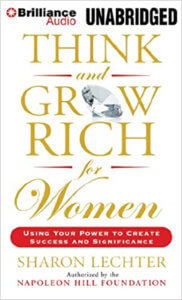
Think and Grow Rich For Women
You taught me something about you and maybe your holistic philosophy of living life in a significant way or a completely different manner. The family and marriage counselors tell us that the two major causes of divorce and interrelation challenges are infidelity and finance. Now, you go to a board game to invite the spouses, significant others, and family members to learn about financial literacy.
I have never thought of it in those terms, and that’s why now I know why you are an expert also in personal relationships because you are passionate about dealing with 1 of the 2 major stumbling blocks and knives that cut through our relationships. Talk a little teeny bit about how we and our families need to talk about financial literacy to make sure everybody understands, not just the single breadwinner in the family, male-dominated conversation, or a female-dominated conversation. Everybody needs to understand that and get it, so please teach us.
You have heard the phrase, “The rich get richer and the poor get poorer,” that’s because we are not teaching it in school. If we truly wanted to level the playing field for every child to have equal opportunity, we would be teaching them about money and entrepreneurship in school but we are not. I do think I have a pretty strong relationship. We are celebrating 40 years of marriage this 2021. My husband’s parents celebrated 72 years of marriage.
You have to not necessarily always be on the same page but at least read from the same script and know that you have a common goal in mind. People always say to me, “I don’t want to teach my kids about money. I don’t want them to get greedy,” and I go, “At what age do you think a child knows the difference between a $1 and a $20?” Tell me, at what age stands on me, $1 and a $20.
Probably at two years of age.
It’s at 3 or 4. They know which bill they want. They already understand the buying power but what they need to understand is the earning power and what it takes to get there, so talk to your kids about the world around them. When you are sitting in a fast-food restaurant, say, “The owner is not here because he has all these people working for him or her. There’s one company that makes the packaging for the hamburgers and there’s another company that makes the straw.” Start to talk to them about the world around us from the standpoint of money. Kids are eager to learn. They ask those questions.
Kids already understand the buying power. What they need to understand is the earning power and what it takes to get there.
Much of it is also languaging, and I know you agree with me. Many of us learn about money from fear. We grow up hearing, “Money doesn’t grow on trees, pinch your penny, or save for a rainy day.” We hear those things growing up, and it is money negative. No wonder we develop this mindset of scarcity or are afraid we are never going to have enough money, and then when we get money, we are afraid we are going to lose it. That fear or mindset is what holds us back.
Once you can recognize it, you can start releasing it. Coming back to relationships, I always tell people that are together to go out on a money date and start talking about their parents’ philosophy about money. You will usually start laughing because you will see the differences between how you were raised. It helps you bridge that gap and determine how you are going to move forward by setting the same goals so that you can achieve them. Also, we can’t afford it is a negative statement that closes your mind.
If you are saying that to your children, you are passing it on to the next generation. When you say, “We can’t afford it,” you can feel it. You want to crawl in a hole and turn the lights off, so say, “How can I afford it?” That opens your mind to the possibilities. It triggers your creativity, your entrepreneurial spirit, and you want to figure out how but wait until you see the ideas your kids come up with on how to afford the things that they want out of life. That’s how they build their self-confidence. It is setting a goal, achieving it, and celebrating it. You will see their self-confidence grow right in front of you.
During the downtime, the so-called pandemic or the passive purge as I call it, what could all of us start doing to prepare ourselves for when we finally come out of this economic downturn? People can download this interview 70 years from now when we have taken our last breath, and you have left this amazing legacy but again, this show focuses on the philosophies or principles that never change. What do you understand in your experience that will allow us to prepare ourselves to respond to rapid change no matter how many times it happens again in the future?
Whether it’s this pandemic, a death, a divorce or an illness, we all have things that stop us in our tracks. The question is, are we going to stay stopped or are we going to use that time to retool, redefine, re-fire, and adapt to the new areas? Successful businesses do 1 of 2 things. They either solve a problem or serve a need. We have a few of those. If you go after that, you can create a really successful business, but in the midst of it, it is important to figure out where you are.
If you are earning money in exchange for your time, then you have been hurt a lot worse than people that have income-producing assets. At the time now, ask yourself, “How can I start creating, buying or building income-producing assets?” Those of us that have those economic engines working for us mean we have not spent our time for money but we have invested our time in buying, building, and creating income-producing assets. That’s different. That’s how you create generational wealth. It is investing your time to build an asset. Don’t just exchange time for money.

Personal Wealth: Instead of saying we can’t afford it, say how can I afford it? Cause that opens your mind to the possibilities and triggers your creativity.
The obvious is real estate, and you understand that so well but let me put you on the spot. What’s another asset do you think is wealth-building, where we get that passive income check coming in while we are sleeping? As you said, when we go into a fast-food restaurant, we realize the owner is out boating while everybody else is paying his bills.
The number one fastest way is intellectual property. If you know something, share it and write a book. That book is going to be able to live beyond you. It’s going to be out there working. People can access it and create programs. Thinking of a new app for somebody is intellectual property. That’s how you can create wealth very quickly, and it has never been easier because of the internet and being able to go work on it online but the question is, “What problem are you solving or what need are you serving?” That’s what’s going to make it, not just successful but sustainable and scalable, so you will have intellectual property and other businesses.
During this pandemic, you may not have time to build your own self-sustaining business but there are people out there that support their products and services. Many of them have affiliate programs. You can make a lot of money sitting at your computer talking about other people’s products through their affiliate programs. That’s the way they start cranking up your cashflow, and that cashflow can then help you design and build your own business. Real estate, other businesses, intellectual property, and of course, stocks, bonds, and mutual funds pay for assets.
Let’s shift gears into the last segment. We have talked about your passion that comes out, your preparation, and you have given us this amazing advice on how to prepare ourselves for the next rapid change so that we are not blindsided. I’m still curious, and I know everybody is curious about why you are still doing this after all these years. Why didn’t you hang up your cleats? What drives you? Why are you pursuing this passion after you have accomplished so much and have a few shillings in the bank?
I appreciate the question because I asked myself that quite a while ago. Years ago, and I think you may know, I lost my youngest son. We are not supposed to outlive our kids, and it threw me into neutral or feeling numb. I was always playing the bigger game with Disney and Warner Brothers, and then all of a sudden, I wasn’t. I was playing small. I was still writing and speaking but I didn’t have the same burning passion. A couple of years ago, I thought I should retire because I’m not working. I need to but I’m working because I want to. I said, “I needed to take a step back.”
I’ve got a lot of pushback from family and friends, and I heard my son whispering in my ear, saying, “Get over it, mom. There’s more for you to do.” I then realized that a lot of people have things that stop them in their tracks. Hanging back and trying to retire didn’t work for me. I was going crazy, so I made the decision to re-fire. I launched the Play Big Movement, which is a private Facebook Group. Anybody can join us. I name it the Play Big Movement because I decided to play bigger again. Much of it is your mindset because when I made that decision, all kinds of things started coming my way, and I wanted to share it with other people so that they could play big alongside me.
Successful businesses either solve a problem or serve a need.
You can go to PersonalSuccessEquation.com. I wanted people to look at their own success and how they could play a bigger game. It was amazing because I had to teach myself a new mindset. I had gone into the world of numbness. Now, so many people are there because of what they are suffering. It may not have been the last few months. You might have had a death in the family, a divorce, a financial setback, or an illness but you are still here for a reason. There are people out there who can benefit from what you know and how you survived.
For several years when I decided to play big again, I didn’t talk about my son. I think somebody was asking me for my biggest obstacle. I immediately went to the world of business, and none of them felt so big anymore because I realized nothing impacts you anymore when you lose a child, so on that spot, I said, “I need to share this.” Once I started sharing what I went through, the feedback that I’ve got was amazing. There were lives that were opened and people who felt comfortable taking that next step.
Everybody reading this, you are still here for a reason. There are people out there that can benefit from what you have been through. They can benefit from how you have overcome your obstacles. When people say, “I see the light at the end of the tunnel,” I go, “Stop it. You are waiting for somebody else to bring you light. Become your own beacon of light. Stand in your own light. As you become a beacon of light, others will come to you, and they will share their light. You can truly make a difference but don’t wait for the light at the end of the time.
As we wind down our time, I was moved many years ago by Professor Randy Pausch. Being a professor for the last few years teaching Public Speaking at the MBA level in several universities, as my final examination, I have always had my last lecture. I hear and feel the depth of answers coming from 18 to 24-year-olds, and because I teach at night, I also have some non-traditional students who are coming back to get their MBA. We have folks in their 40s and 50s. My last lecture is always, “If you’ve got four minutes, what would you drive 5 hours in 1 way to say to somebody for free? If you had one hour to live, what’s your last lecture or your final message to the world?”
You could talk about financial literacy but you already admitted that your greatest obstacle was not business-related. You are an iconic philosopher. You are not just a financial wizard. Teach us and you can take more than one minute. When someone says, “What was Sharon Lechter about?” Here’s your chance. I want to know it. This could be one of the greatest things that I will now take intellectual property for and sell online for a couple of million bucks. It’s the wisdom of the Oracle Sage.
When I was growing up, my dad would ask me each night, “Have you added value to someone’s world today?” He has been gone for several years, and I still ask myself that every single night. Success isn’t about dollars in the bank. It’s about how you feel about yourself when you look in the mirror, and it has nothing to do with the reflection. A couple of years ago, I was in Shanghai speaking. I had a translator. The young man stood up to ask me a question. He was probably in his early twenties. The room started booing him, and my translator said, “You don’t need to answer the question,” and I’ve got really curious going, “What’s he asking me?”

Personal Wealth: Whether it’s this pandemic or whether it’s a death, divorce or an illness, we all have things that stop us in our tracks. The question is, are we going to stay stopped or are we going to use that time to retool, redefine and refire adapt?
Here’s this Western woman with white hair, and he is asking those questions. I said, “Tell me what the question is first.” The young man had stood up and said, “What do you think the meaning of life is?” Of course, the room felt that that was very rude. I said, “I will answer the question.” I shared with him that the meaning of life for me is that when I’m gone, people will feel that their life was better for having known me, and it ties right back in from the message from my dad, which is, “Have you added value to someone’s life today?”
You make every day a revenue day, and revenue to you is giving way before you ask or take. Every time we have been on the program together, I have acknowledged you to the group and the room but as I said at the very beginning, it has been intriguing for me to sit in the back and watch the reaction to your introduction. This larger-than-life being comes out on stage, and then you mold and mesmerize the audience in your own unique way. I love you and honor you. How can we join your tribe? How can we get more of Sharon Lechter? Tell us about your connection and your books.
My website is SharonLechter.com, and then I’m @SharonLechter on everything, whether it is LinkedIn, Instagram or on my professional pages. I am @AuthorSharonLechter on Facebook. If you go to PersonalSuccessEquation.com, you can get the download that tucks you through your passion, challenge, and power of association, taking the right action, and above all, having faith in yourself.
It helps you dig deeper into your own psyche to figure out what you might need to do to step out of your comfort zone to take that next step, and then as I mentioned, my private Facebook Group is called Play Big Movement with Sharon Lechter. I welcome everybody to join all of them. Follow me and help us spread the word. We are all in this together. Let’s work and play bigger together. If you are going to work, play big, and playing big means being number one in your field, living your legacy, and creating maximum impact. Like you, even though you are a big man, your impact and legacy are huge. That, my dear friend, is what you are doing.
Let me quickly refer to the way I conclude every one of these episodes. We all need to remember that when you finally decide to be a Power Player, which is what you have been talking about for the last couple of minutes, your power play, ladies and gentlemen, begins in you, so until next time, quantify your takeaway and go make a power play as our dear friend and legendary oracle Sharon Lechter has explained to us. Again, I can’t tell you how much I appreciate you. I can’t wait to connect offline and not only share the program with you but break bread in an intimate social setting because you inspire me so much. I love you. Thank you.
Thank you. I love you back. I can’t wait to be able to give you a real hug, even in nowaday’s world.
Thanks. Have a great day.
Important Links:
- Sharon Lechter
- Rich Dad Poor Dad
- Think and Grow Rich for Women
- Play Big Movement with Sharon Lechter – Facebook Group
- PersonalSuccessEquation.com
- @SharonLechter – LinkedIn
- Instagram – Sharon Lechter
- @AuthorSharonLechter – Facebook
About Sharon Lechter
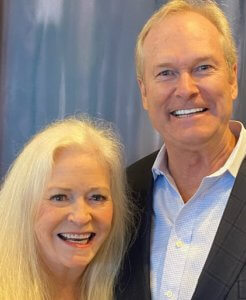 Sharon L. Lechter is an American accountant, author, and businesswoman. She is the co-author of Rich Dad Poor Dad, and the founder and CEO of Pay Your Family First, a financial education organization. In January 2008, Lechter was appointed to the President’s Advisory Council on Financial Literacy to serve a two-year term. Lechter graduated from Florida State University with an Accounting degree in 1979,[3] then worked briefly for a small accounting firm, “Big Eight”. She met her husband, Michael Lechter, in 1980. Subsequently, the Lechters met Robert Kiyosaki and, together, formed the Rich Dad companies. Lechter has stated that she held various management positions with unnamed computer, insurance, and publishing companies, while maintaining her credentials as a professional CPA. In 1997, Lechter co-authored the book Rich Dad Poor Dad, along with 14 other books in the Rich Dad series, and was CEO of the Rich Dad company for over 10 years. She also annotated Outwitting the Devil (1938), in cooperation with the Napoleon Hill Foundation, and co-authored its publication, Three Feet from Gold. In 2007 Lechter created Pay Your Family First, a financial literacy education company.
Sharon L. Lechter is an American accountant, author, and businesswoman. She is the co-author of Rich Dad Poor Dad, and the founder and CEO of Pay Your Family First, a financial education organization. In January 2008, Lechter was appointed to the President’s Advisory Council on Financial Literacy to serve a two-year term. Lechter graduated from Florida State University with an Accounting degree in 1979,[3] then worked briefly for a small accounting firm, “Big Eight”. She met her husband, Michael Lechter, in 1980. Subsequently, the Lechters met Robert Kiyosaki and, together, formed the Rich Dad companies. Lechter has stated that she held various management positions with unnamed computer, insurance, and publishing companies, while maintaining her credentials as a professional CPA. In 1997, Lechter co-authored the book Rich Dad Poor Dad, along with 14 other books in the Rich Dad series, and was CEO of the Rich Dad company for over 10 years. She also annotated Outwitting the Devil (1938), in cooperation with the Napoleon Hill Foundation, and co-authored its publication, Three Feet from Gold. In 2007 Lechter created Pay Your Family First, a financial literacy education company.
